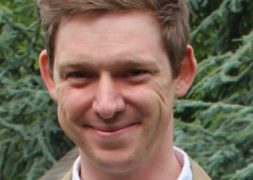
Edward Anderson is a Senior Lecturer in History at Northumbria University. He was formerly the Smuts Research Fellow at the Centre of South Asian Studies (2015-2019). His research focuses on the Indian diaspora, transnational politics, religious nationalism, and British histories of migration, ethnicity, and multiculturalism.
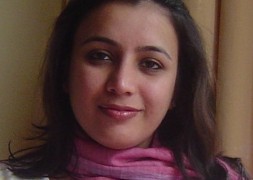
Dr Datta is a Temporary Lecturer in the Faculty of History and affiliated to the Centre. After completing her PhD on gender and urban space in post colonial Delhi, she is currently working on her book monograph, along with a new project on women's informalities and patterns of urban change in modern South Asia.

Emeritus Professor of International Business, School of Management, Royal Holloway, University of London
Recently published: 'The Chinese and Indian Corporate Economies; a comprehensive history of their search for economic renaissance and globalization', Routledge, 2017
email: r.brown@rhul.ac.uk

Patrick Clibbens is a Lecturer in Imperial and Postcolonial History at the University of York. From 2017 to 2020 he was a Teaching Associate at the Centre of South Asian Studies. He works on the political history of post-Independence India and its diaspora. His published articles have examined the Indian Emergency of 1975-77 through the lenses of political history, urban history and diaspora politics.

Lizzie Collingham is an independent historian. Having completed her PhD at Cambridge she taught History at the University of Warwick before becoming a Research Fellow at Jesus College, Cambridge. She is now an independent scholar. Her books include Imperial Bodies: The physical experience of the Raj c.1800–1947, Curry: a tale of cooks and conquerors, The Taste of War: World War II and the battle for food and The Hungry Empire: how Britain’s quest for food shaped the modern world. As part of a project commissioned by the Indian president to make his palace accessible to the wider public she wrote Around India’s First Table: Dining and entertaining at the Rashtrapati Bhavan. Her imagination having been captured while lecturing on a Gastronomic Tour of Kerala she is now working on a book on the region.
email: lizzie.collingham@gmail.com
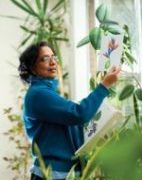
Professor of South Asian History, University of Sussex. Professor Damodaran is a historian of modern India, interested in sustainable development dialogues in the global South. Her work ranges from the social and political history of Bihar to the environmental history of South Asia, including using historical records to understand climate change in the Indian Ocean World.
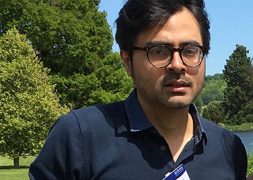
Rohan Deb Roy is Lecturer in South Asian History at the University of Reading. He is a historian of colonial science, medicine and environment. He is the author of Malarial Subjects: Empire, Medicine and Nonhumans in British India (Cambridge, 2017), which won the second prize at the 2018 BSHS Pickstone Prize for the 'best scholarly book in the history of science'. He is the co-editor of the volume Locating the Medical: Explorations in South Asian History (Oxford, 2018), and co-editor of a special section on 'Nonhuman Empires' (Comparative Studies of South Asia, Africa and the Middle East, 2015). He is currently working on a cultural history of the interactions between insects and the colonial state in South Asia. He received his PhD from University College London, and has held postdoctoral fellowships at the Centre for Studies in Social Sciences, Calcutta, at the University of Cambridge, and at the Max Planck Institute for the History of Science in Berlin. He has also served as a Barnard-Columbia International Visiting Scholar in the History of Science. He is currently Co-Director of the Centre for Health Humanities in Reading, Book Reviews Editor of South Asian History and Culture(Routledge), Associate Reviews Editor of The American Historical Review (Oxford), and a member of the Council of the British Society of the History of Science. He is a Fellow of the Higher Education Academy, a Fellow of the Royal Asiatic Society, and of the Royal Historical Society.
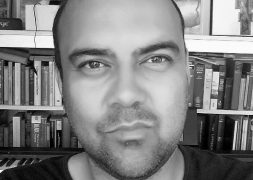
Mark Ravinder Frost is Associate Professor of Public History at UCL, having previously worked at the Asia Research Institute in Singapore, the University of Hong Kong and the University of Essex. He was educated at the University of Oxford, where he graduated with First Class Honours, and he completed his doctorate at the University of Cambridge in 2002. He is the author of Singapore: A Biography (2009; 2012) which in 2010 won the Asia Pacific Publishers Association Gold Medal and was selected as a CHOICE ‘Outstanding Academic Title’, as well as the edited collection Remembering World War II in Asia (2019). Between 2005 and 2007, he was Content Director and Senior Scriptwriter for the National Museum of Singapore’s award-winning Singapore History Gallery (2006-2015). He is currently Principal Investigator and founder of the ongoing War Memoryscapes in Asia Partnership (WARMAP http://www.warinasia.com/) and has been involved in several public history ventures, writing and co-producing the films I Remember the Fall of Singapore (2017) and the three-part Love in a Time of Change (2018). Presently, he is working on a book about Asian attitudes to the British Empire in the late-19th and early 20th centuries, a feature-length documentary about the emergence of Singapore’s alternative music scene, and a collaborative project which explores the politics of heritage-making in post-civil war Sri Lanka.
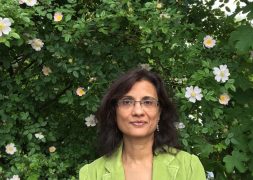
Dr Sudeshna Guha, Associate Professor of History, Shiv Nadar University, U.P., India and Tagore Research Scholar, National Museum, New Delhi. Dr Guha is a historian of South Asia with field training in archaeology. She also researches on visual histories, and is currently working on archaeological creations of cultural heritage in post-colonial India. Recently published: Artefacts of History; Archaeology, Historiography and Indian Pasts (SAGE, New Delhi, 2015)
email: sg10012@cam.ac.uk
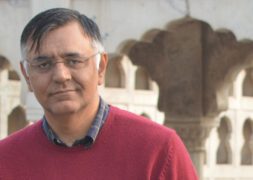
Tahir Kamran, former Allama Iqbal Fellow at CSAS and Fellow of Wolfson College Cambridge, is Professor of History in the Department of Liberal Arts at Beaconhouse National University, Lahore, Pakistan. He is editor of the Pakistan Journal of Historical Studies and Director of the Khaldunia Centre for Historical Research. Previously he had been the Dean of Arts and Social Sciences and the Chairperson of the History Department at GC University Lahore. He also contributes to The News on Sunday, Lahore on a weekly basis. His column is Past Recast, which is widely read in Pakistan and beyond. He has published extensively on Sectarianism, Religious Fundamentalism and the state of minorities in Pakistan. He co-authored a book, Colonial Lahore: History of the City and Beyond, which was a huge success. He is on the editorial board of several reputed journals. He is also active on the issues of higher education in Pakistan
email: tk393@cam.ac.uk

Affiliated to Clare Hall, was Professor of Asian History at the University of Malaya, Kuala Lumpur. Areas of interest: Southeast Asian trade and state formation in the early modern era; environmental and conservation history; problems of resource and environmental sustainability in the context of global trade, corporate investment, and political culture
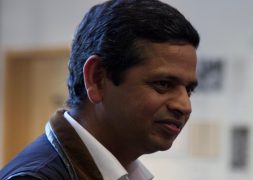
Aishwarj Kumar is a University Associate Professor who teaches Hindi at the undergraduate level at the Faculty of Asian and Middle Eastern Studies, University of Cambridge. He also teaches Hindi and Urdu to MPhil students at the Centre of South Asian Studies, University of Cambridge. He holds an MPhil degree in History from the University of Delhi. His research interests include the history of North Indian languages particularly Hindi, Urdu and Bhojpuri, literary history, the social and cultural history of colonial North India and Indian theatre. He has published on the history of the Indian People's Theatre Association ('Visions of Cultural Transformation: I.P.T.A. in Bengal, 1940-1944'. In Turbulent Times: India, 1940-44, edited by Bismoy Pati, 167-84. Bombay: Popular Prakashan, 1998.) And, also on Hindi in colonial and post-colonial India. He has contributed articles to a number of Hindi journals and newspapers such as Vaak, Jansatta and Swatantra Varta. His most recent publication includes: A Marginalised Voice in the History of 'Hindi', Modern Asian Studies, 2013, Vol. 47, Issue 5, pp. 1706-1746. Most recently he presented a paper entitled 'The Question of Language in Nineteenth-Century Bihar' at a Conference on 'Bihar and Jharkhand: Shared History to Shared Vision' organized by the Asian Development Research Institute, Patna, India on March 24-27, 2017.
email: ak403@cam.ac.uk
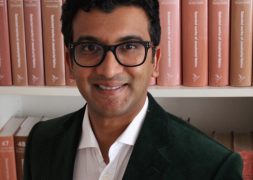
Dr Harshan Kumarasingham is Lecturer in British Politics at the University of Edinburgh. As an Affiliate of the Centre his research will be focussed on the Crown’s legacies in post-independent India, Pakistan and Sri Lanka and the Commonwealth’s influence on South Asia, 1947-72. He was previously hosted by the Centre as Smuts Visiting Fellow in Commonwealth Studies where he worked on his concept of “Eastminster”, which examines how the British parliamentary model worked in Asia as it emerged from British rule. His work covers Commonwealth and South Asian political and constitutional history, particularly during the period of decolonization in the twentieth century. His most recent book is Constitution-Making in Asia - Decolonisation and State-Building in the Aftermath of the British Empire.
email: harshan.kumarasingham@ed.ac.uk

Dr Leake is Associate Professor of International History at the University of Leeds. She completed her BA and MA in history at Yale University in 2009 before moving to the University of Cambridge for her PhD. She subsequently held a Leverhulme Trust Early Career Fellowship at Royal Holloway, University of London, from 2013-16. Her first book, 'The Defiant Border' is a history of the northwest frontier tribal area of the Indian subcontinent (what is now Pakistan’s Federally Administered Tribal Area) in the context of decolonization and the global Cold War. It considers why this region has remained largely autonomous in the twentieth century, as well as why the region has persisted in interesting state actors in South Asia and the West.
email: E.Leake@leeds.ac.uk
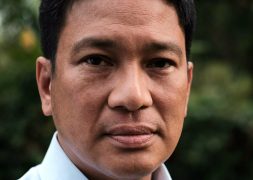
Dr Thant Myint-U is an historian, writer, and conservationist. He is a former Fellow of Trinity College, Cambridge (1995-99) and the author of four books on Burmese and Asian history and politics, most recently The Hidden History of Burma: Race, Capitalism, and the Crisis of Democracy in the 21st Century. He has also served on three United Nations peacekeeping operations, in Cambodia and the Balkans (1992-5) as well as the Chief of Policy Planning in the UN's Department of Political Affairs in New York (2003-2006). Since 2007 he has been involved in numerous reform efforts in Burma, including as a member of the National Economic and Social Advisory Council, a special advisor to the government on peace-building, the founder and chairman of the Yangon Heritage Trust and the chairman of U Thant House. He lives in Rangoon.
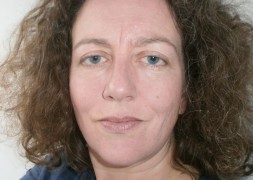
I am a historian working primarily on South and Southeast Asia. My broad research interests include migration and its role in spurring social and political change, sub-imperial systems, inter-ethnic relations, and the dynamics of citizenship, race and status in colonial systems. My first book, Mobile Citizens: French Indians in Indochina, 1858-1954, is due to be published by NIAS Press and is based on a PhD in history awarded from SOAS in 2009. At the Centre for South Asian Studies I will be furthering a study of geopolitical tensions and transnational connections established by the exile to Saigon of the Burmese Prince Myngoon Min and his entourage, with funding from a British Academy/Leverhulme Small Research Grant.
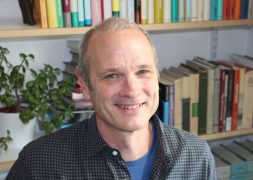
Norbert Peabody is an historian and anthropologist whose research focuses on nationalist discourses in India from the early 19th century to the present. His historical research explores how imaginings of national identity that were articulated in early 19th century India rebounded upon Britain’s national identity in surprising and unexpected ways later during that century. His anthropological research focuses on forms of ‘muscular nationalism’ in India (Rajasthan, in particular) and how they have been manifest in the violence of religious nationalism and its lived aftermaths.
He is also currently editing a newly introduced and annotated edition of James Tod’s famous Annals and Antiquities of Rajast’han. This will be published by Yale University Press in January 2023. In addition, Norbert Peabody is the Editor of the CUP journal Modern Asian Studies until January 2022.
email: np208@cam.ac.uk
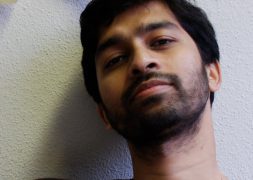
Apurba Kumar Podder completed his PhD in Architecture from the University of Cambridge. His PhD thesis examined the relationship between the neo-liberal policies in Bangladesh and their impact on the growth of illegal agricultural bazaars in coastal cities. His thesis argues that neo-liberal policies directly promoted the growth of chronically illegal status of agri-bazaars in urban areas as a powerful instrument for internal class exploitation of the poor. He is now working on his first monograph entitled, The making of ‘illegal’ marketplace: State, class and space in Khulna c. 1951-2008.
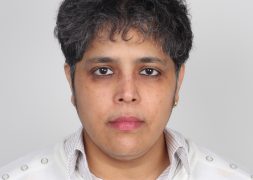
Dr Subhadra Sanyal holds a PhD on the history of the book in Bengal from the School of Oriental and African Studies, University of London. Her research interests include the history of writing, the Bengali book, print culture, and cultural nationalism in nineteenth-century Bengal. She is currently engaged in writing and researching for her book monograph on the place of the book in modern Bengali learned culture.
email: ss2485@cam.ac.uk
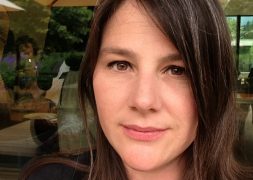
Katherine Butler Schofield is a historian of music and listening in Mughal India and the early colonial Indian Ocean. Through stories about ill-fated courtesans, haughty ustads, and captivated patrons, she writes on sovereignty and selfhood, affection and desire, sympathy and loss, and power, worldly and strange. She is a Senior Lecturer at King’s College London and is currently a British Academy Mid-Career Fellow working on a project “Histories of the Ephemeral: Writing on Music in Late Mughal India, 1757–1858”. Her first book, with Francesca Orsini, is Tellings and Texts: Music, Literature, and Performance in North India (Open Book, 2015), and her second, with Imke Rajamani and Margrit Pernau, is Monsoon Feelings: A History of Emotions in the Rain (Niyogi, 2018).

Dr Shahani is a lawyer and historian of modern South Asia. Her recent PhD in history from the University of Cambridge focused on Sindh and the partition of India. She works on the partition of India, refugee migration, citizenship, decolonization, the legal histories of South Asia and the British empire, and the histories of ecumenical traditions of religious practice
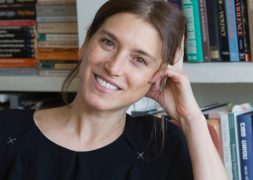
Ornit Shani is a scholar of the politics and modern history of India. She is a Senior Lecturer at the Department of Asian Studies, University of Haifa.
Ornit received her PhD from the University of Cambridge. She was a Research Fellow at St. John’s College, Cambridge University. Her current research focuses on the modern history of democracy and citizenship in India. Her forthcoming book is How India Became Democratic: Citizenship and the Making of the Universal Franchise, Cambridge University Press (2017). This book uncovers the greatest experiment in democratic history: the creation of the electoral roll and universal adult franchise in India. Ornit holds an Israeli Science Foundation (ISF) grant for her sequel project: ‘Embedding Democracy: the Social History of India’s First Elections’. Her other areas of research are the rise of Hindu Nationalism, identity and caste politics, communal and caste violence. She is the author of Communalism, Caste, and Hindu Nationalism: The Violence in Gujarat (Cambridge University Press, 2007).
email: shanio@research.haifa.ac.il
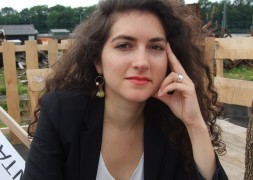
Dr Devika Singh is Curator, International Art at Tate Modern. She was Smuts Research Fellow at the Centre of South Asian Studies (2012-2015) and a fellow at the Centre allemand d’histoire de l’art (Max Weber Foundation). She holds a PhD in the history of art from Cambridge and was a visiting fellow at the French Academy at Rome, the Freie Universität, Berlin, and the Kluge Center of the Library of Congress, Washington D.C.. Her research has also been supported by the British Academy, the AHRC, Trinity College and the Paul Mellon Centre, among others. She is published in Art History, Third Text, the Journal of Art Historiography and Modern Asian Studies, as well as in edited volumes and exhibition catalogues. She is currently writing a book on art in post-independence India for Reaktion Books. Recent exhibitions include ‘Planetary Planning’ at the Dhaka Art Summit (2018) and ‘Gedney in India’ at the CSMVS, Mumbai, and Duke University (2017 and 2018).
email: ds328@cam.ac.uk
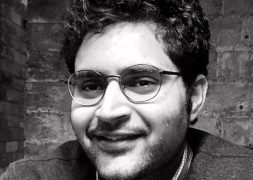
Dr Tripurdaman Singh is a historian interested in the broad themes of sovereignty, state formation, decolonisation and constitution making in South Asia. He is particularly keen on the early 19th century and the mid 20th century - the British encounter with Indian state forms and political vocabulary in the 19th century and the birth of Indian democracy and the Nehruvian high tide in the mid 20th century. Dr. Singh is a British Academy Postdoctoral Fellow at the Institute of Commonwealth Studies, University of London and the author of Imperial Sovereignty and Local Politics (Cambridge University Press, 2019) and Sixteen Stormy Days (Penguin, 2020).
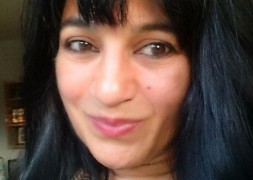
Ms Shiraz Vira is a sociologist who completed her Mphil at the University of Cambridge (1991). She has been actively involved in sending students from the University of Cambridge to volunteer with Environmental and Development related Non-Governmental Organisations in India.
Her charity Camvol has helped well over 100 Cambridge students in finding meaningful internships and voluntary work in India. She has assisted students interested in International Development with finding work experience in the field of ‘development’. This has helped them with their academic dissertations and pursuing careers in development related fields.